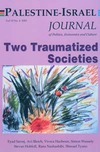Editorial
The capture of Saddam Hussein was not a real surprise to many
observers -it was only a matter of time. But no one should think
this will bring an end to the bloody situation in Iraq. The fall of
a dictator like Saddam, in a country like Iraq, with all its social
and ethnic complexities, will only open the door to fiercer
fighting than that we have already seen. Those who fought for
Saddam may give up, but those who did not fight for him will be
encouraged to fight for their own sake. No one will take victory
from them. Those who can be hired to fight for cheque-payers will
do that as long as there is someone willing to pay.
Iraq will be a greater attraction for dreamers and adventurers of
all kinds; fundamentalists and nationalists alike - those who have
nothing to lose or nowhere to go. It will remain unstable there for
many years to come. President Bush, who claimed he came to Iraq to
bring freedom and democracy, has already realized the heavy price
the Iraqi people are paying f
read more ...
